Home remedies for head colds could offer some relief
A runny or stuffy nose, overall tiredness, and a scratchy throat make head colds hard to deal with. It’s possible to soothe these symptoms with a few home remedies. Learn more about what you can do with what you already have at home.
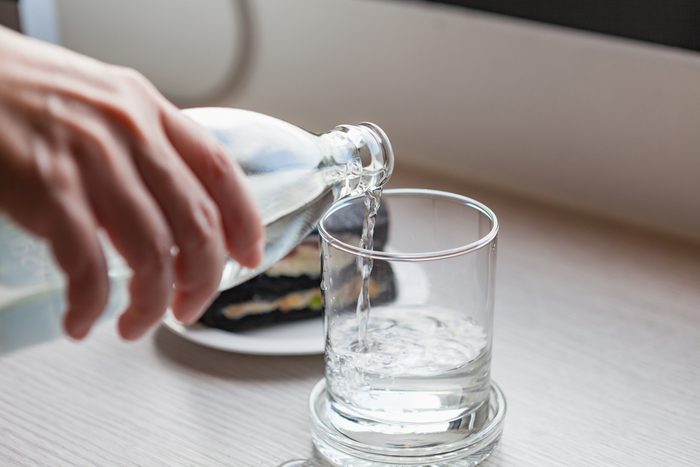
Stay hydrated
One of the best head cold remedies is to stay hydrated, according to Theresa Fiorito, MD, an infectious disease specialist at NYU Winthrop Hospital on Long Island, New York. “I practice what I preach, so when I get sick, it’s fluids, fluids, and more fluids, combined with adequate rest,” she says. Make sure to consume more water than you usually do when healthy. Avoid alcohol and caffeine, which are slightly naturally dehydrating. And learn these 50 ways to avoid catching a cold this season.
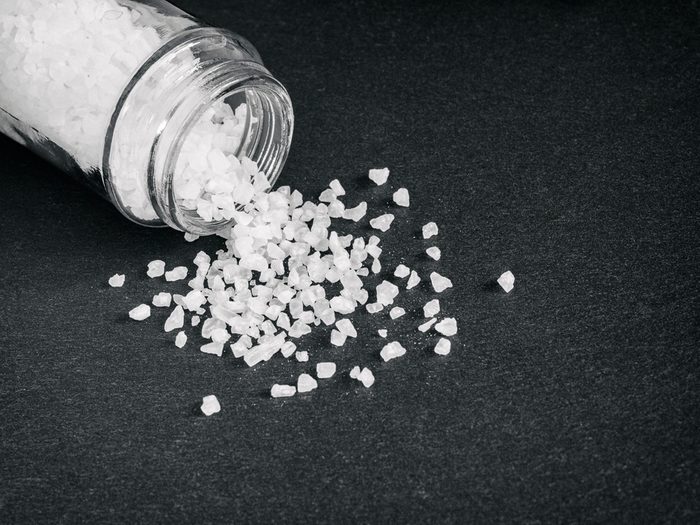
Gargle with salt
The best over the counter head cold medicine can actually be found in your own cabinet: salt. Dissolve it in warm water and gargle to soothe your throat, the Centers for Disease Control and Prevention recommends. This will also help break up the mucus and disinfect your mouth and throat. Since ancient Egypt, salt has been used as a healing treatment for a multitude of ailments. But, when you take it out of your regular diet, this is what happens to your body when you cut back on salt.

Consume warm liquids
Bringing an ailing friend a comforting bowl of chicken soup is customary, but does it really help a cold? Absolutely. In addition to providing nutrients and protein for the sick person, warm liquids help soothe a sore throat and break up mucus much like a warm salt gargle. Not hungry? Try hot tea for an effective head cold remedy, particularly with honey and lemon or even ginger root. Honey coats the throat, and research shows that lemon has antibacterial properties, and that ginger has anti-inflammatory properties. Watch out for these signs that your common cold could be something worse.

Get plenty of rest
As there are no cures for common cold and flu, the best head cold medicine truly is rest. Get plenty of sleep at night and do your best to avoid exertion during the day. Your body needs downtime in order to recover from the common cold.
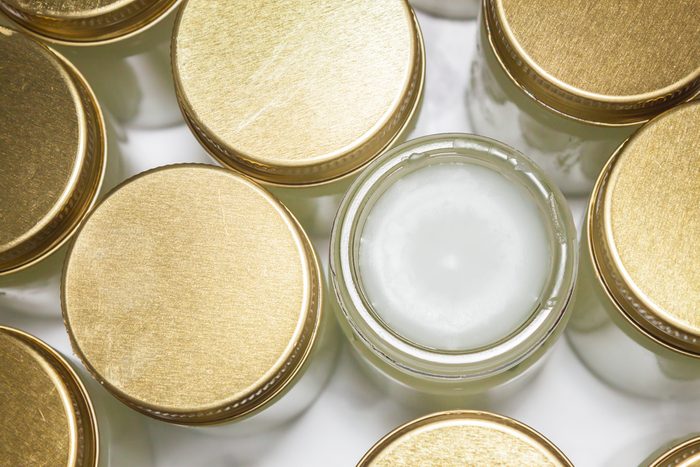
Mentholated salve
Many believe menthol is a great home remedy to help with head cold symptoms. What started as an herbal treatment in the 1800s has become the main ingredient in over-the-counter cold medications. It’s a key ingredient in many vapor rubs because of the distinct smell. A 2013 study in Respiratory Medicine found that menthol inhalation reduces cough sensitivity. Plus, other research published in Phytochemistry in 2013 also shows it has anti-bacterial and pain-relieving effects, too.
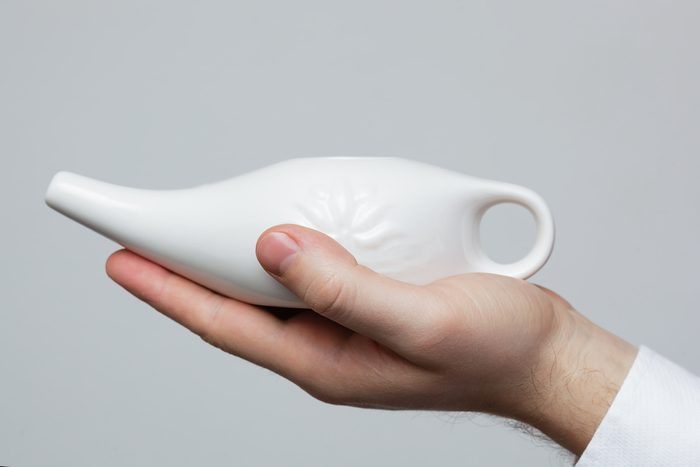
Try a neti pot
This ancient Indian tradition can help with your congestion when you have a cold. This head cold remedy works to clean out your sinuses and improve your ability to breathe more easily. Whether you’re a frequent neti pot user or it’s your first time, these neti pot safety tips will ensure your sinuses are cleared out the right way.
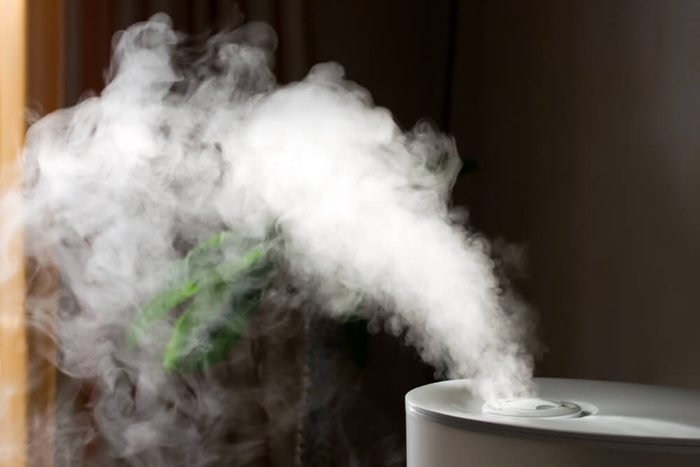
Bonus: Adding cool moisture may help
Some experts believe cool-mist humidifiers may offer a bit of relief, but it’s probably not worth investing in a humidifier strictly because of a cold. The benefits of humidifiers are inconsistent at best, according to Dr. Fiorito. A systematic review of research published in 2017 shows that using humidifiers neither helps nor hurts people with the common cold. “In theory, I suppose a humid environment could help the same way fluids do, by loosening secretions,” Dr. Fiorito says. “An important caveat to this is to remember to clean the humidifier appropriately to decrease any risks of infection or inhalation injury.” If you happen to have one at home, clean it before use. If not, check out how to choose the best humidifier for your space. You can also opt to run a hot shower, close the door, and sit in the steam for 20 minutes.

